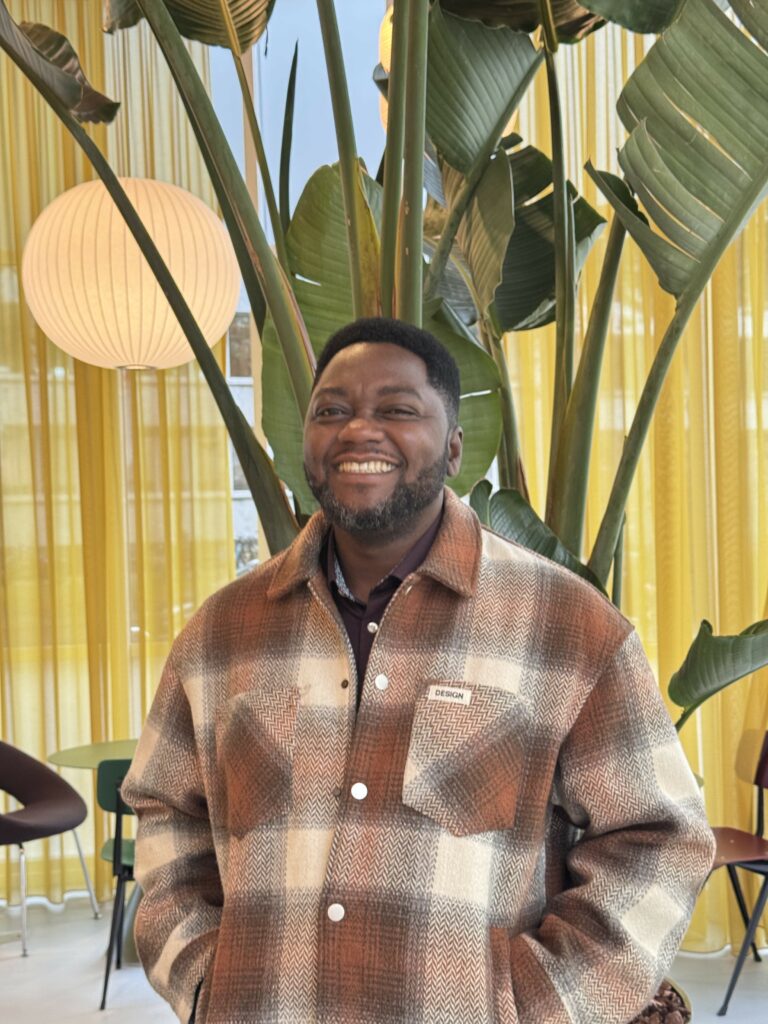This interview with Henry Ushie – Programme Manager for Accountable Governance at Oxfam Nigeria – was conducted by Isabel Sánchez Rotllán, Intern with Oxfam Novib
When Henry Ushie, speaks about fair taxation, his passion fills the room.
“Fiscal governance is my rice and beans,” he laughs. “It’s what I love — ensuring public finance works for the people.”
For Henry and the teams behind Oxfam and Tax Justice Network Africa’s Fair Tax Monitor (FTM), the conversation about taxing the rich in Nigeria is no longer a taboo. It’s becoming national policy. And that, he says, “is exactly what our broad Tax Justice coalition has helped make possible.”

From Vision to Action
Q 1: You’ve been active in the field of fair taxation in Nigeria for years. What motivated you, and what key changes have you observed?
“When I began,” Henry recalls, “Oxfam was almost alone. We had tax-justice and governance platforms in 16 states. Today, there are 21, plus one in the Federal Capital Territory. That expansion is huge!”
This growth means that civil-society organisations across Nigeria are now equipped to discuss tax justice confidently, meet with policymakers, and demand accountability.
“We’ve strengthened capacity, networks, and credibility,” Henry explains. “Now, the Federal Government itself invites us to sit at the table. We’re observers in the Presidential Committee on Fiscal Reforms, helping shape Nigeria’s new tax law.”
The transformation didn’t happen overnight. Years of training, coalition-building, and research; including the landmark 2019 and 2024 FTM reports contributed to the groundwork.
Changing the Conversation: Civil Society Raises its Voice
Q 2: Have CSOs become more outspoken on taxing the rich and engaging policymakers?
“Absolutely,” Henry says. “Civil society is now loud on tax. Every year we organise a National Tax Summit, where organisations, journalists, and officials set the tax-justice agenda for the year ahead.”
In 2024, the movement went digital:
“We launched the Tax Justice and Governance Platform website, which brings together work from 22 states — research, campaigns, blogs. It’s Oxfam-funded and hosted by CISLAC, our long-term partner. It shows how far we’ve come, from awareness to real policy influence.”
These platforms give visibility to grassroots voices, from women traders to informal workers, who now understand their rights and can question unfair tax practices. “That’s how change sticks,” Henry adds.
Evidence That Drives Reform
Q 3: The report made nine recommendations. Has there been progress?
“The biggest success is that many of those recommendations fed directly into the new national tax law,” Henry explains proudly. While the FTM report urged Nigeria to tax wealth, improve compliance among the top 1 percent, and digitalise collection, the government has already acted on several fronts.
“We now see progress on tax expenditure reform, so incentives are not given arbitrarily,” Henry says. “The law also recognises the need for digital tax administration, so citizens can pay taxes online or through mobile phones without going to an office. That’s inclusion in practice.”
In the coming year, Oxfam and its partners will focus on capacity-building, helping coalitions understand the new legal framework and track its implementation. “We’ll make sure the new system truly benefits citizens, not just elites,” he says.
A Long Road for Wealth Taxation
Q 4: Which recommendations have been harder to move forward?
Henry doesn’t hesitate: “Wealth taxation. We submitted a memo to Parliament, but it was struck out. Lawmakers said the country isn’t ready, that the system must mature first.”
Still, part of the proposal survived. “Luxury goods such as private jets, champagne, and expensive cars are now facing higher import duties. It’s not called a wealth tax yet, but it’s a start.”
And the advocacy continues.
“We’ll keep pushing. Evidence from the FTM report shows that taxing the richest 1 percent could raise over $6 billion a year, enough to double the health budget. The case is clear.”
Partnerships That Open Doors
Q 5: Have new relationships been built with tax authorities or political figures?
“Yes,” Henry nods. “Our ties with the Presidential Fiscal Reform Committee and the Federal Ministry of Finance are stronger than ever. We now have an open-door arrangement, we are recognized by the authorities, and we engage at a high level. That is access beyond expectation.”
At the state level, cooperation has deepened too. Local CSOs hold information workshops, partner with tax offices, and educate market women, artisans, and youth on fair taxation. “These are new alliances that didn’t exist five years ago,” he says.
Unexpected Outcomes and Broader Impact
Q 6: Were there any unforeseen results from the report and advocacy work?
Henry smiles. “Yes – the biggest surprise is how tax has become popular. When we began, very few NGOs even mentioned taxation. Now, many have made it their core agenda. In Port Harcourt, the organisation CARDI works solely on tax. Others in Anambra and Kano do the same. They’re high-flyers now, and that’s something we can be proud of.”
Another achievement: recognition. “Our movement has credibility. Policymakers see us as experts, not critics. That’s a powerful shift.”
Looking Ahead: Sustaining Momentum
Q 7: What’s next for progressive taxation in Nigeria?
“The new tax law takes effect on January 1, 2026,” Henry says. “Until then, we’re preparing civil society and state tax boards to implement it effectively. Technical committees are already drafting the operational templates.”
Long-term, Oxfam will continue supporting digital innovation, wealth transparency, and inclusive reform, ensuring that Nigeria’s progress is both measurable and just. The FTM report is a good tool to direct the conversation and build on for the future when there is more willingness to tax the rich.
“Our goal,” Henry concludes, “is simple: make the rich pay their fair share so the poor can live with dignity. That’s what fair taxation means. And seeing where we are, we’re no longer just dreaming about it, we’re building it.”
For more info check: https://www.taxjustice.ng
